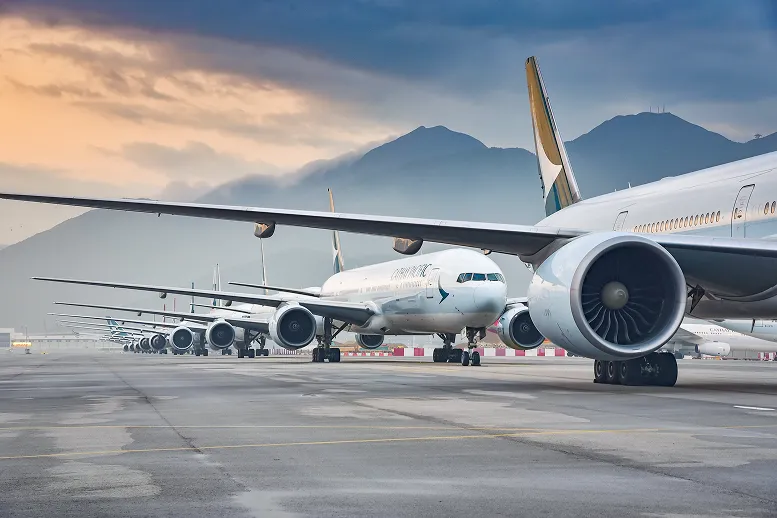Why Airline Stocks Merit Attention in 2025
Economic Recovery Boosts Travel Demand: As global economies stabilize, rising consumer confidence is expected to drive increased demand for both leisure and business travel. Airlines stand to benefit from higher passenger traffic.
Air Cargo Remains a Key Revenue Stream: Continued growth in e-commerce fuels the air cargo sector, providing airlines with an additional income source. This diversification strengthens their overall business models.
Profitability Rebound: Industry-wide cost optimization initiatives, combined with fleet modernization efforts aimed at improving fuel efficiency, are enhancing profit margins. Many leading airline stocks may experience accelerated earnings growth.
Sustainability Initiatives: Airlines are investing in greener technologies, including sustainable aviation fuels and electric aircraft. These efforts could improve long-term growth prospects and attract ESG-focused investors.
Key Risks of Investing in Airline Stocks
Volatility in Fuel Prices: Jet fuel represents a major cost component for airlines, and fluctuations in its price can have a direct impact on profitability.
Economic Uncertainty: Potential global economic slowdowns or geopolitical tensions could suppress travel demand, adversely affecting airline revenues.
Regulatory Pressures: Stricter environmental regulations may raise operational costs, particularly for airlines that are slow to implement sustainable practices.
Intense Competition: The airline industry remains highly competitive, with low-cost carriers challenging established operators and potentially compressing profit margins.
Trends Shaping the Airline Sector
Digital Transformation: Airlines are leveraging AI and advanced analytics to optimize operations, enhance customer experience, and improve revenue management.
Focus on Premium Services: Demand for premium travel options, including first-class and business-class seating, is rebounding strongly, especially on long-haul routes.
Regional Growth: Emerging markets in Asia and the Middle East are experiencing rapid expansion in air travel, presenting growth opportunities for airlines operating in these regions.
Fleet Modernization: Many airlines continue to prioritize investments in newer, more fuel-efficient aircraft to reduce costs and meet sustainability targets.

Why Trade Airline Stocks Using CFDs?
Flexibility Across Market Conditions: CFDs enable traders to capitalize on both rising and falling airline stock prices, offering versatility in volatile markets.
Leverage for Enhanced Exposure: CFDs provide leveraged access, allowing investors to control larger positions with a smaller initial margin. However, leverage also amplifies risk.
Portfolio Diversification: CFDs allow trading multiple airline stocks without requiring significant capital outlay, offering broad exposure to the sector.
Risk Management Tools: Many CFD trading platforms, including TMGM, provide advanced features such as stop-loss and take-profit orders to help traders manage risk effectively.
How to Approach Investing in Airline Stocks in 2025
Conduct Comprehensive Research: Prior to investing, analyze individual airlines’ financial health, market positioning, and growth strategies.'
Monitor Global Trends: Keep track of macroeconomic indicators, fuel price movements, and geopolitical developments that may influence the airline industry.
Diversify Within the Sector: To mitigate risk, consider allocating investments across various airline stocks, including low-cost carriers, premium operators, and cargo-focused airlines.
Leverage CFD Tools for Strategic Trading: Utilize CFDs to test trading strategies and capitalize on market movements with precision and control.

Airline Stocks Present Opportunities in 2025
Investing in airline stocks in 2025 offers a compelling blend of opportunities and challenges. With economic recovery fueling travel demand, sustainability advancements, and regional growth in emerging markets, the sector has potential for robust returns. Nonetheless, investors should remain vigilant regarding fuel price volatility and economic uncertainties.
For traders exploring advanced strategies, TMGM offers a comprehensive platform for trading airline stocks via CFDs. Visit TMGM to access educational materials, cutting-edge tools, and expert insights to refine your trading approach and maximize investment potential.










